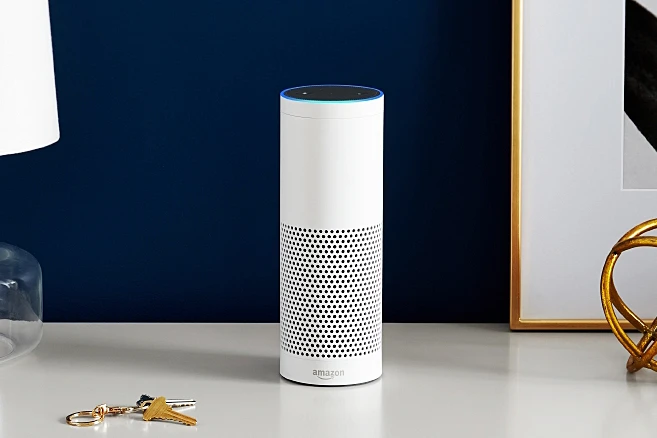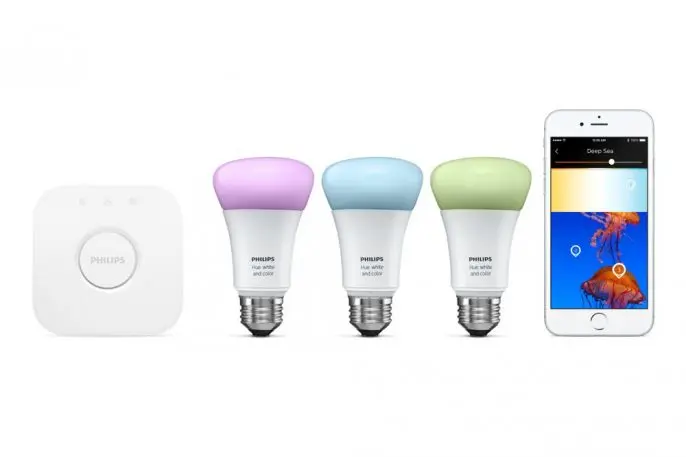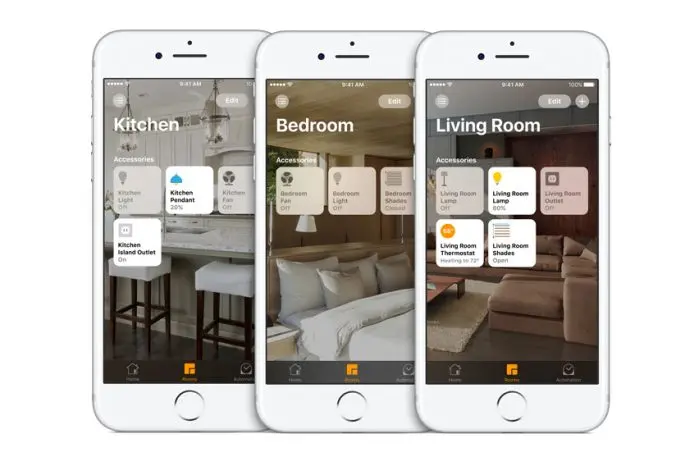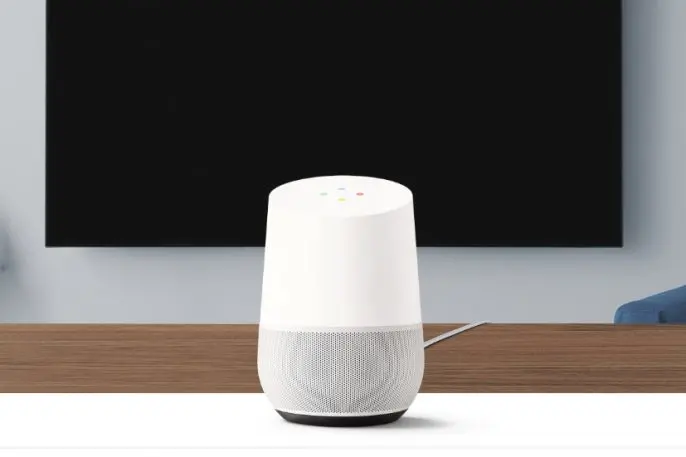There are plenty of reasons to take rumors of a new Apple “smart speaker” seriously. Such a product would not only answer a clear desire among consumers to converse with their technology in the home via voice control but also make sense as a new way to interact with existing Apple services. It could be the product that makes Apple’s connected-home vision–which is built around its HomeKit platform, and is still a work in progress–come to life.
But envisioning a theoretical Apple smart speaker is harder than imagining, say, the next iPhone. And it’s dangerous to assume that it would closely resemble the smart speaker the public knows best–Amazon’s Echo, which pioneered the category.
In fact, it might be misleading to think of Apple’s home device as a “smart speaker” at all. It may do some of the things we’ve already seen the Echo do, like playing music, delivering news and weather, and providing general “assistant” functions like reminders and traffic reports, but it will feel different. You’ll be able to talk to it, but it’ll serve as an endpoint for a different mix of services in the home, like HomeKit, Apple Music, Siri, and maybe tvOS. In short, it will likely look, act, and think different.

The Center Of The Apple Home
Reports about the new Apple device started showing up last year. The most recent, and perhaps most reliable one, comes from KGI Securities analyst Ming-Chi Kuo, who, with his sources in Apple’s supply chain of Asian companies, is usually pretty spot-on in his predictions. Kuo suggests the device would be “positioned for the high-end market” and cost more than Amazon’s $179 Echo, and would have a high-quality woofer and seven tweeters.
Even if it sounds great, the Apple device’s main job may be acting as a natural-language hub for the Apple connected home. The company’s HomeKit strategy has been brewing for the past few years, but has yet to become a mainstream platform on the level with, say, Apple Music. A natural-language hub could drop right into the center of the HomeKit platform and become the physical device by which consumers might begin to identify with HomeKit.
Strictly defined, HomeKit doesn’t currently have a hub that acts as both a central integration point and command center for all the home accessories in the house. Apple says the Apple TV and the iPad currently act as “hubs” because they facilitate away-from-home access to the HomeKit system for iPhone users via the Home app for iOS.
But there’s more to being a hub than creating a remote connection. HomeKit currently relies on Bluetooth and Wi-Fi to connect to third-party devices in the home, such as smart lightbulbs. Accessories that don’t support these technologies natively must use a bridge to connect. That’s one reason that the selection of HomeKit devices has been limited. (Apple estimates that there are now about 140 HomeKit-friendly products, including smart-home mainstays such as Philips’ Hue bulbs.) An Apple hub could include built-in support for the Z-Wave, ZigBee, and Thread standards, and the universe of home accessories that HomeKit could connect to would immediately grow much bigger.

Kuo believes the device will include a camera for facial recognition, which might help it understand which member of a household it’s dealing with. “The facial recognition piece of the equation may relate to Apple investigating how this entertainment experience can be shared by different people,” wrote Above Avalon analyst Neil Cybart in a recent research note.
Distinguishing between family members might be critical: Google recently added support for multiple household member accounts in its Google Home speaker, using voice recognition to tell who’s who. Creative Strategies analyst Carolina Milanesi told me the days of “one home speaker, one account” are over.
It’s Not All About The Cloud
Another way an Apple device might be very different than other smart speakers is in the device’s relationship with the cloud. Rather than being dependent on the internet, the HomeKit platform operates on a device level, communicating directly via Bluetooth and Wi-Fi between iPhones, iPads, Apple TV, and third-party accessories in the home; Apple believes constantly moving data constantly moving back and forth from the cloud creates security and privacy issues.
A new Apple hub device would have to conform to that same approach, at least where HomeKit functions are concerned. Kuo says in his research note that the Apple smart speaker will have computing power comparable with an iPhone 6 or 6s. It might need that much horsepower because it would be handling a lot of home automation data, and coordinating its use with both other iOS devices and third-party accessories scattered throughout the home.
Even if the rumored device functions as a hub, that doesn’t mean it would be marketed as one. It probably wouldn’t be. Instead, it would be marketed with whatever story Apple feels would get it into homes fastest. It could be marketed as an Apple Music device, for example.
“Instead of positioning any one of those core technologies or services as the main product, Apple would position them as ingredients to an overall experience found in the entertainment realm,” Cybart wrote in his report.
Creative Strategies analyst Ben Bajarin took the idea further in a research brief: “Voice is on the cusp of becoming the mechanism to eliminate the remote with our TV experience.” If an Apple hub provided entirely hands-free control of TV, it would change the Apple TV experience for good.

If Not Now, When?
KGI Securities’ Kuo said that there’s an “over 50%” chance that this new product will be announced at Apple’s WWDC developer conference starting June 5. But there are also good reasons to believe that the new product might not be announced at the WWDC developer event coming up June 5. The spring event is typically reserved for talking about new stuff in the four major Apple operating systems, and a major hardware product announcement would steal some of that thunder.
On the other hand, it may simply be time to jump into the market. Amazon and Google already have smart speakers. Samsung’s Harman Kardon has announced one powered by Microsoft’s Cortana. There will be others. And they may spur adoption of entire platforms: For instance, if a Google Home shows up on the kitchen counter one day, the family might be tempted to start buying home accessories that work well with it.

Amazon created the smart-speaker category; the Echo has proved remarkably popular with consumers, strongly suggesting that they want to be able to talk to a home device as if it were a person standing in the room with them. But the name “smart speaker” never really fit even the Echo, and as more and more products come out it’ll fit new entrants in the category even less.
We’ve already seen Amazon itself aggressively widening the category to include a variety of devices that contain the Alexa brain. In just the past few weeks it’s announced two of them: The Echo Look, a smart mirror that is meant for the bedroom and is more about its camera than anything else. And the new Amazon Show‘s distinguishing feature is its display.
In another year, the only things that will still be true of all the devices in this category will be that they’re connected to internet services and can understand and speak natural language in the open air. While Amazon’s Echo has defined the category so far, Apple has a shot at redefining it–as it’s done in the past with MP3 players, smartphones, and beyond.
Recognize your brand’s excellence by applying to this year’s Brands That Matter Awards before the early-rate deadline, May 3.
